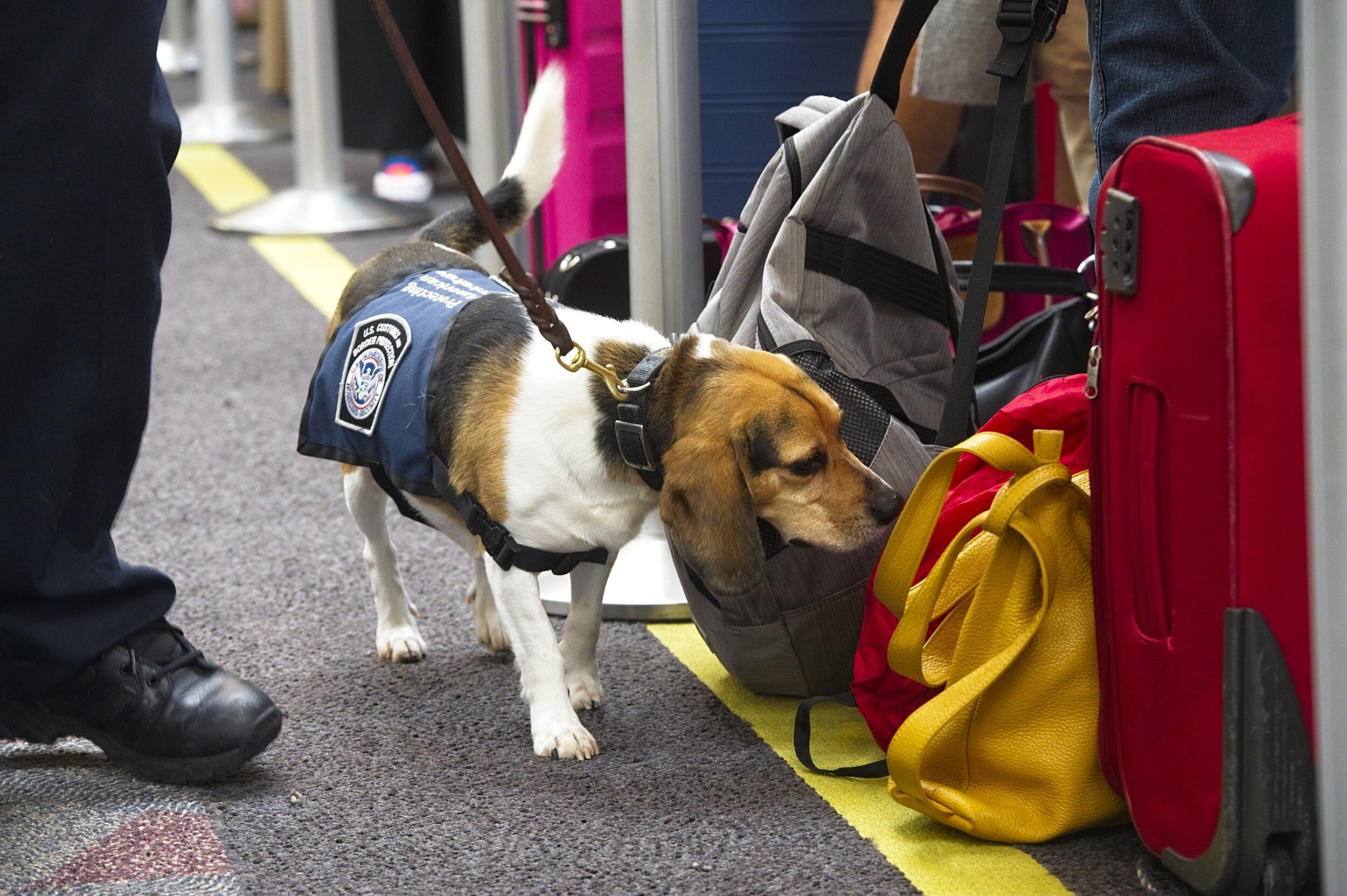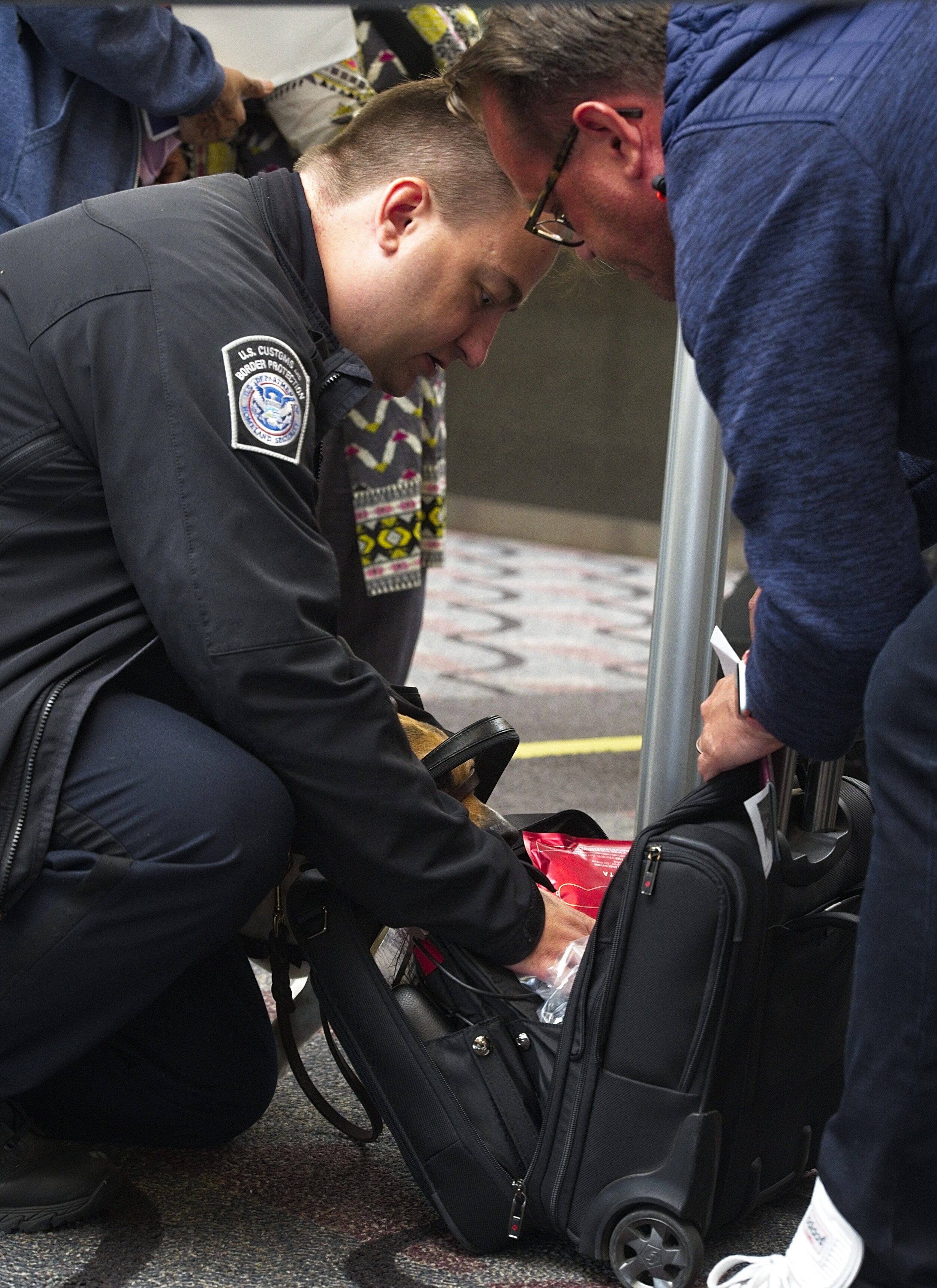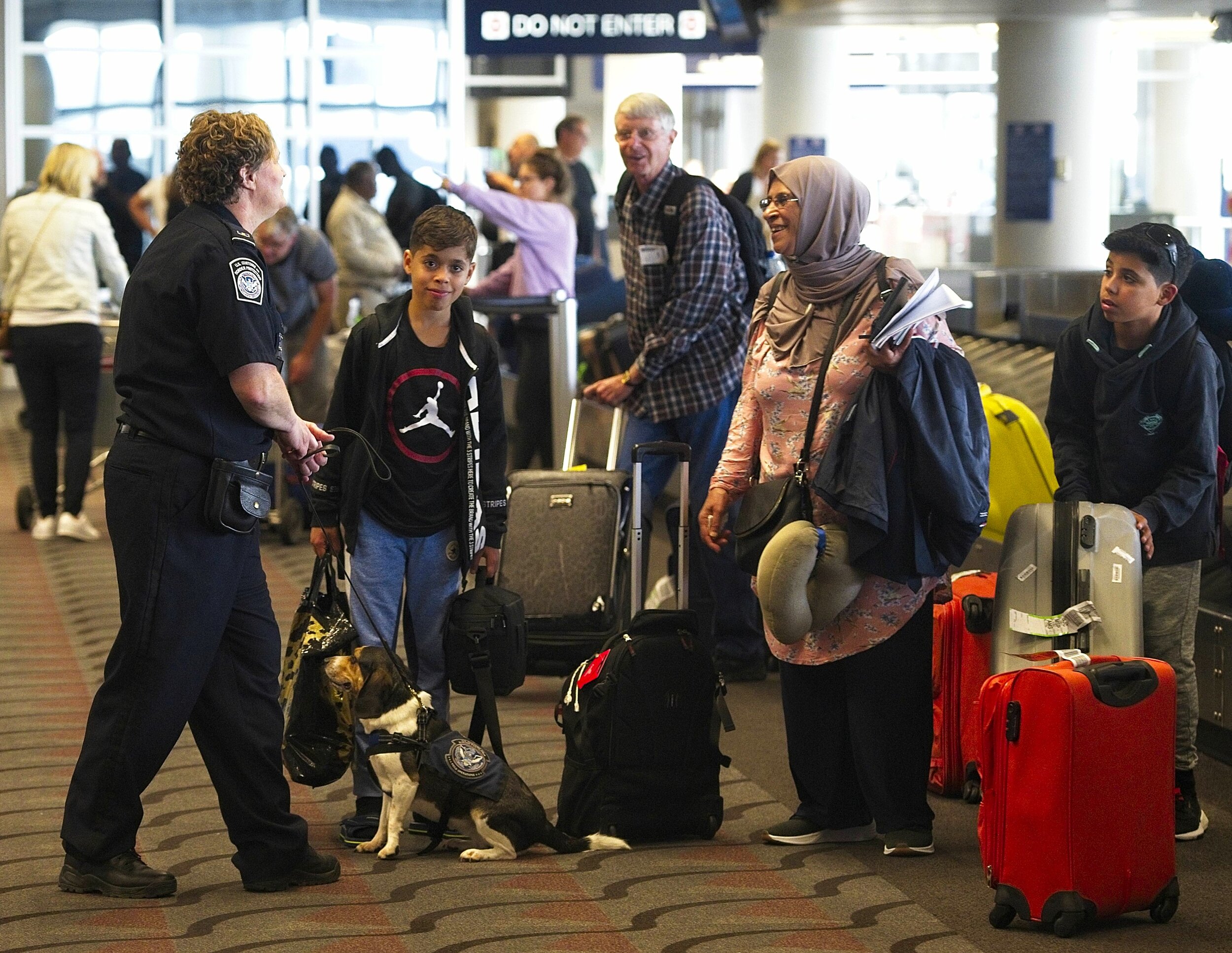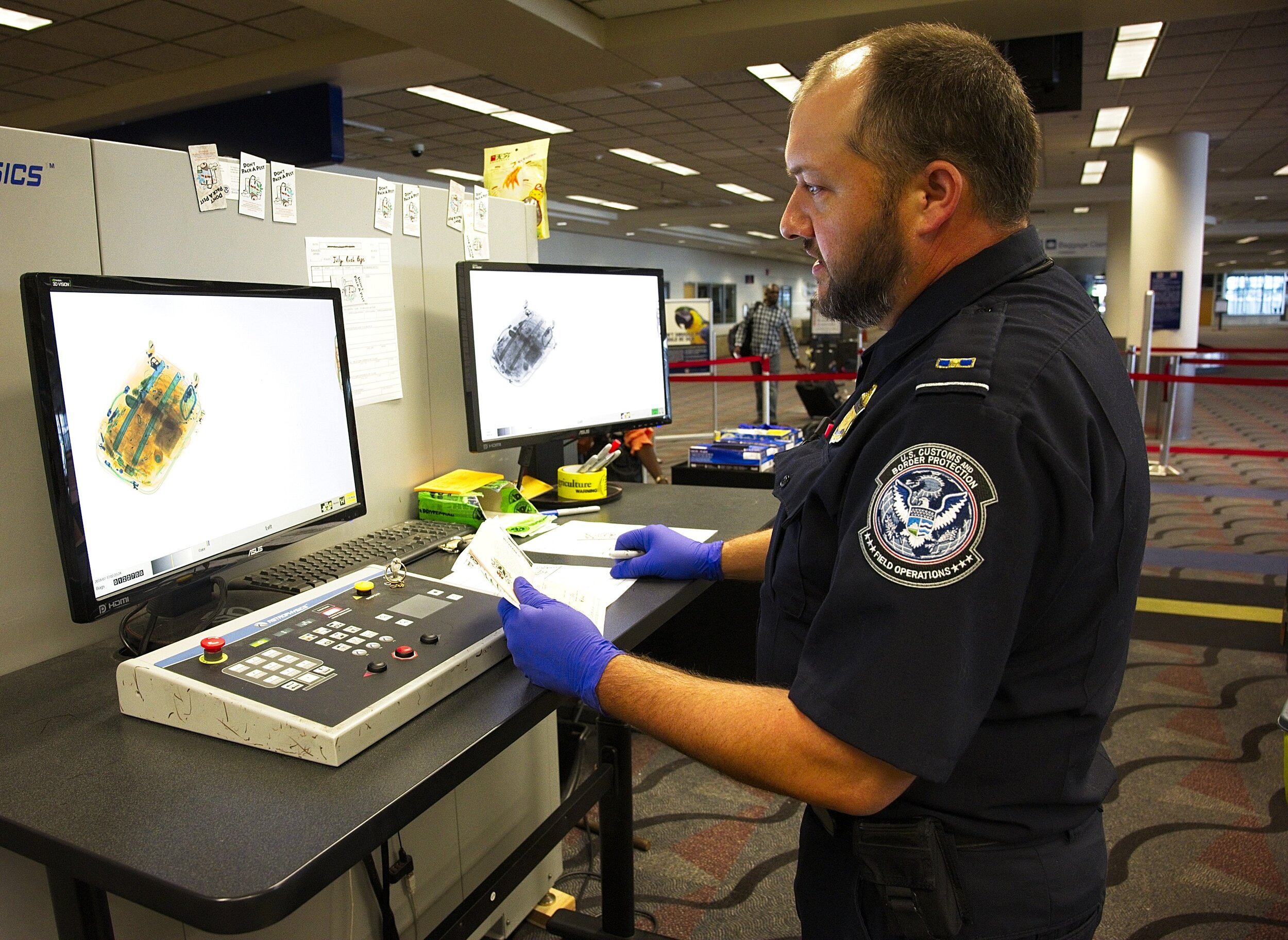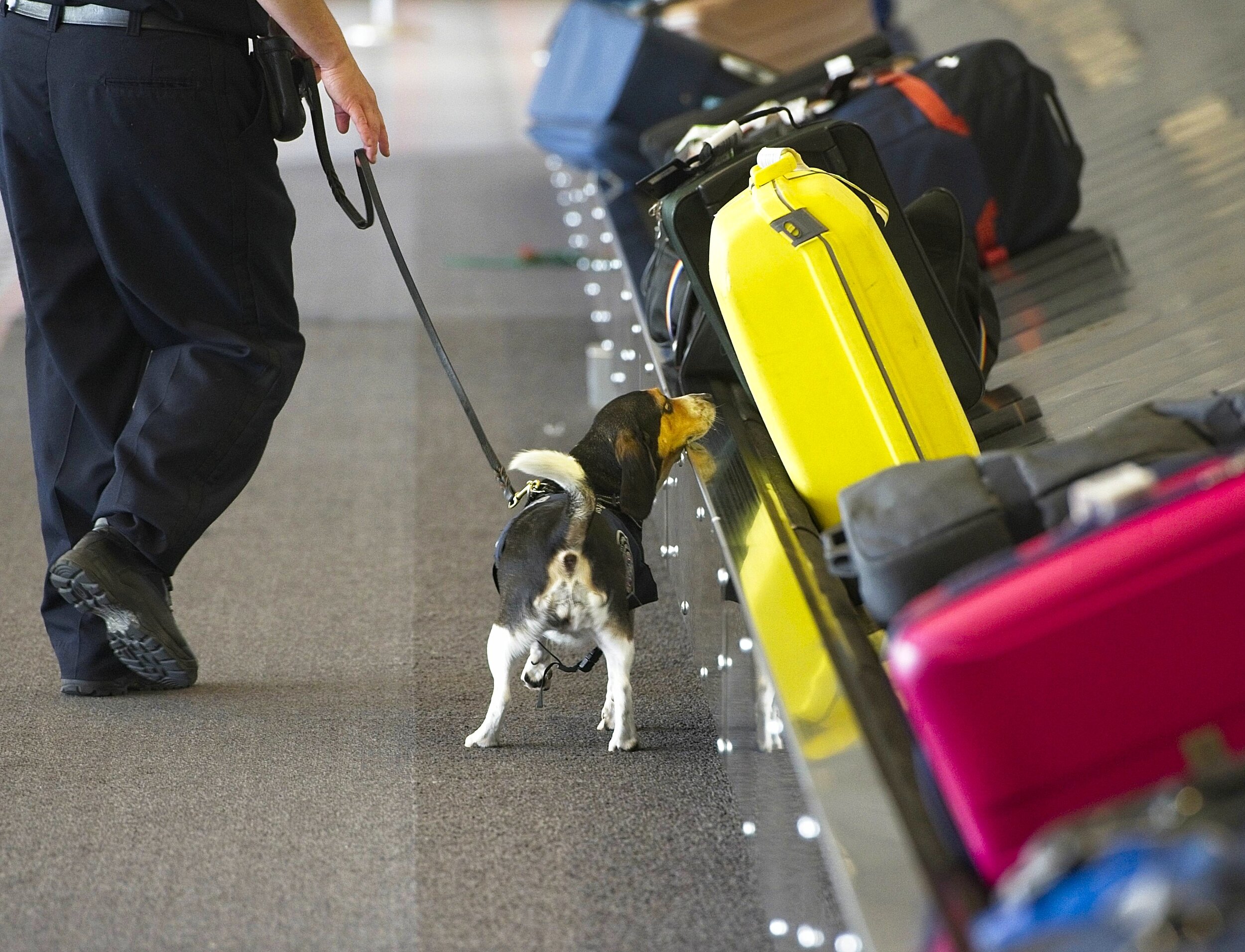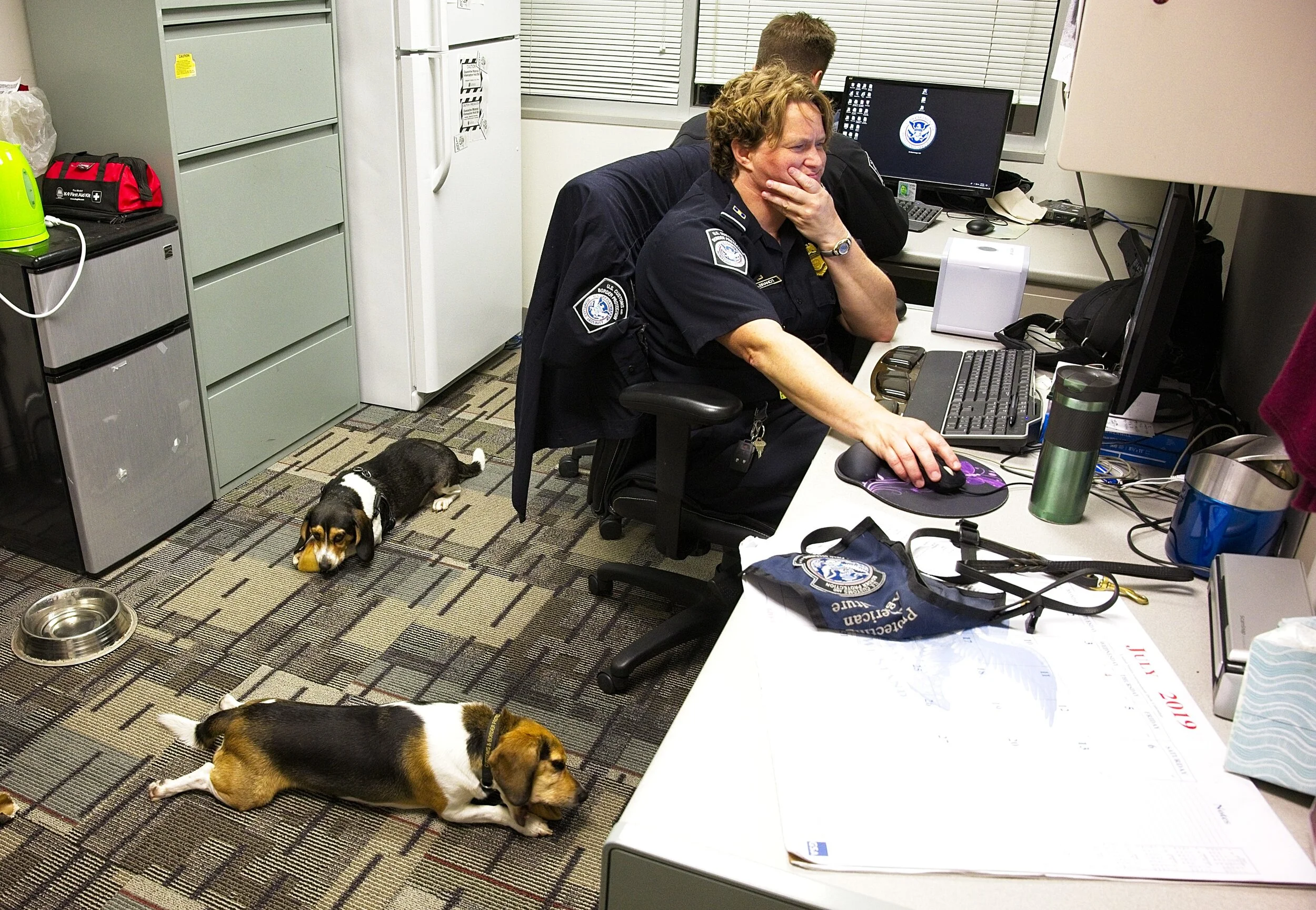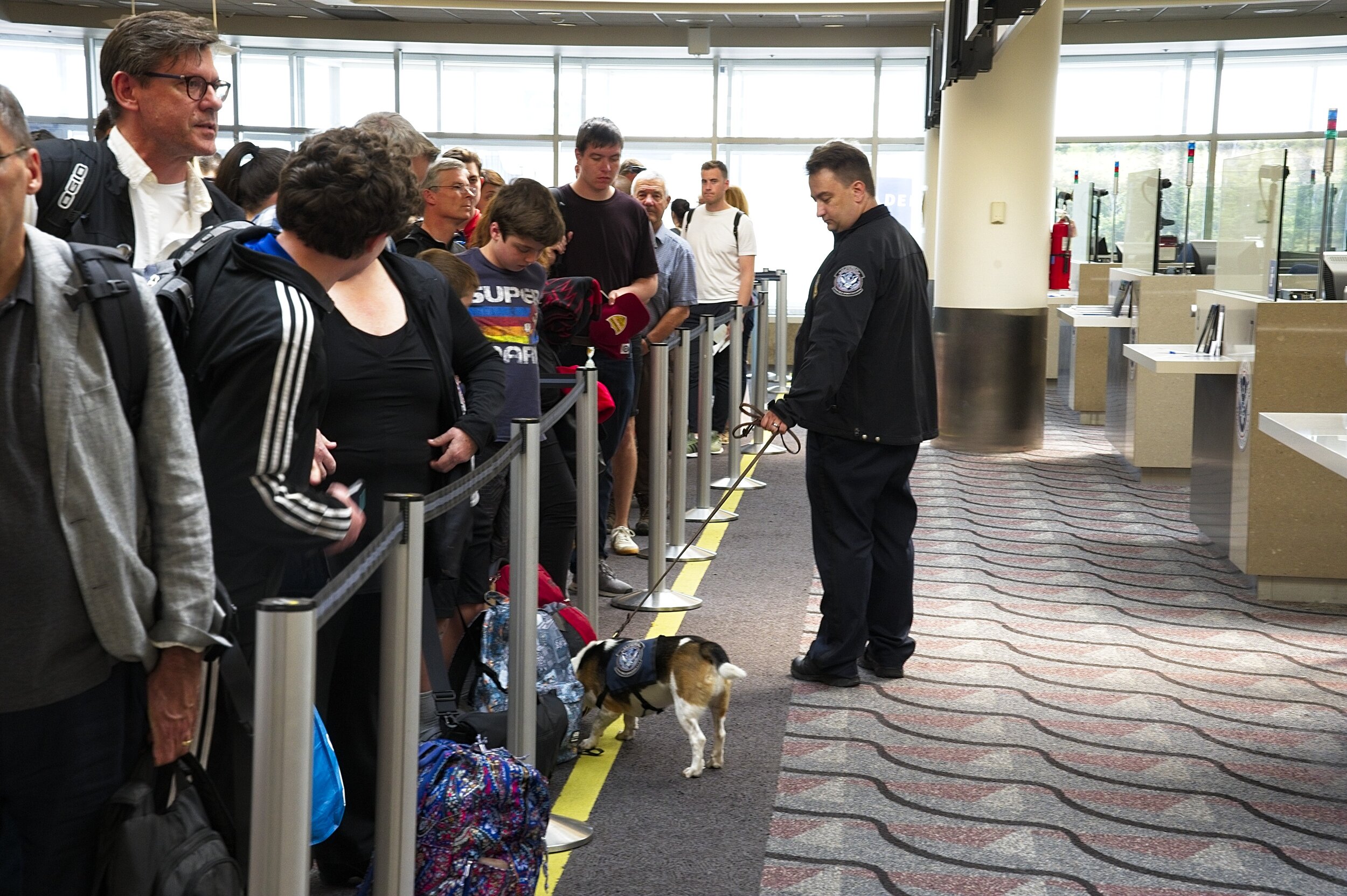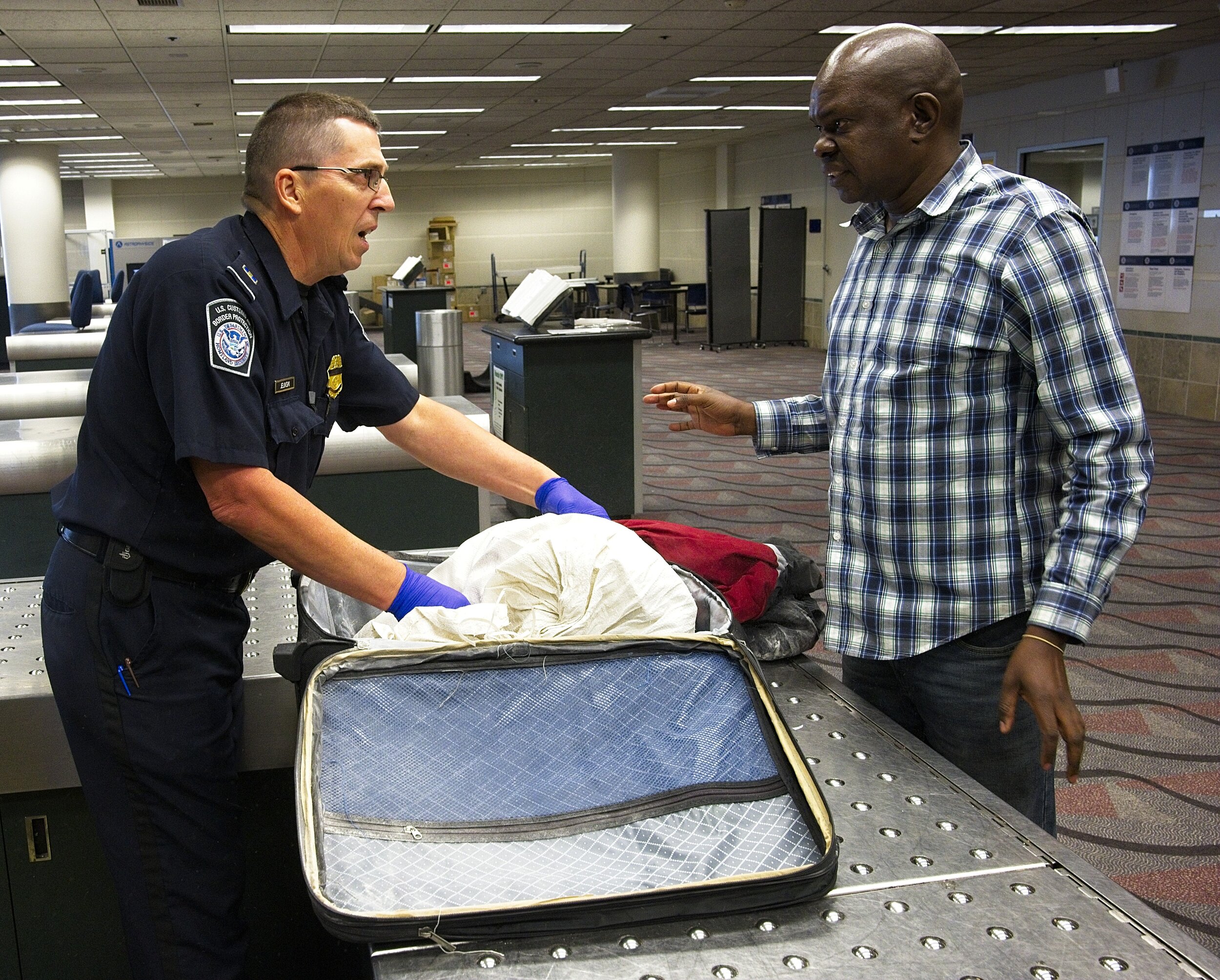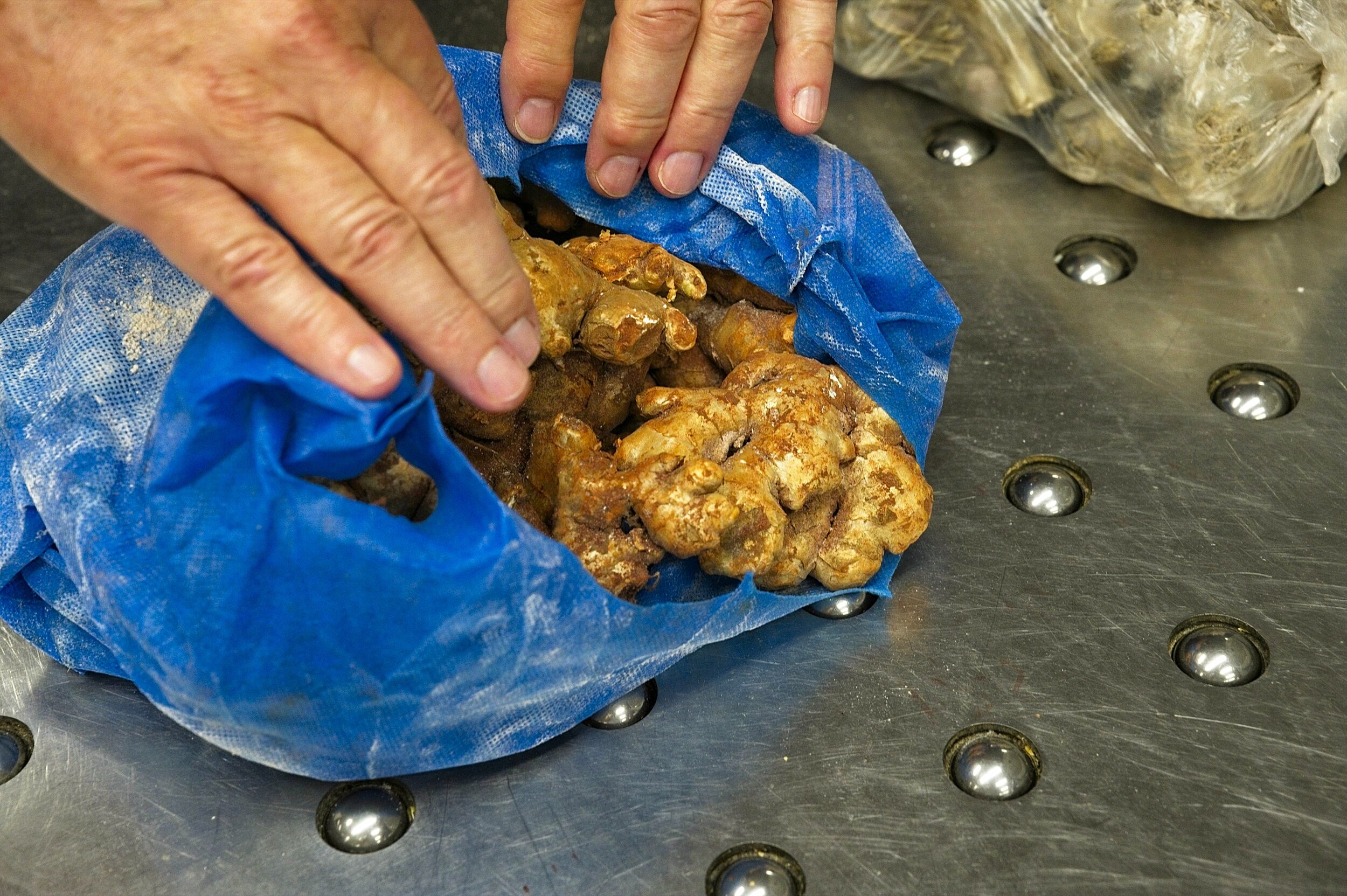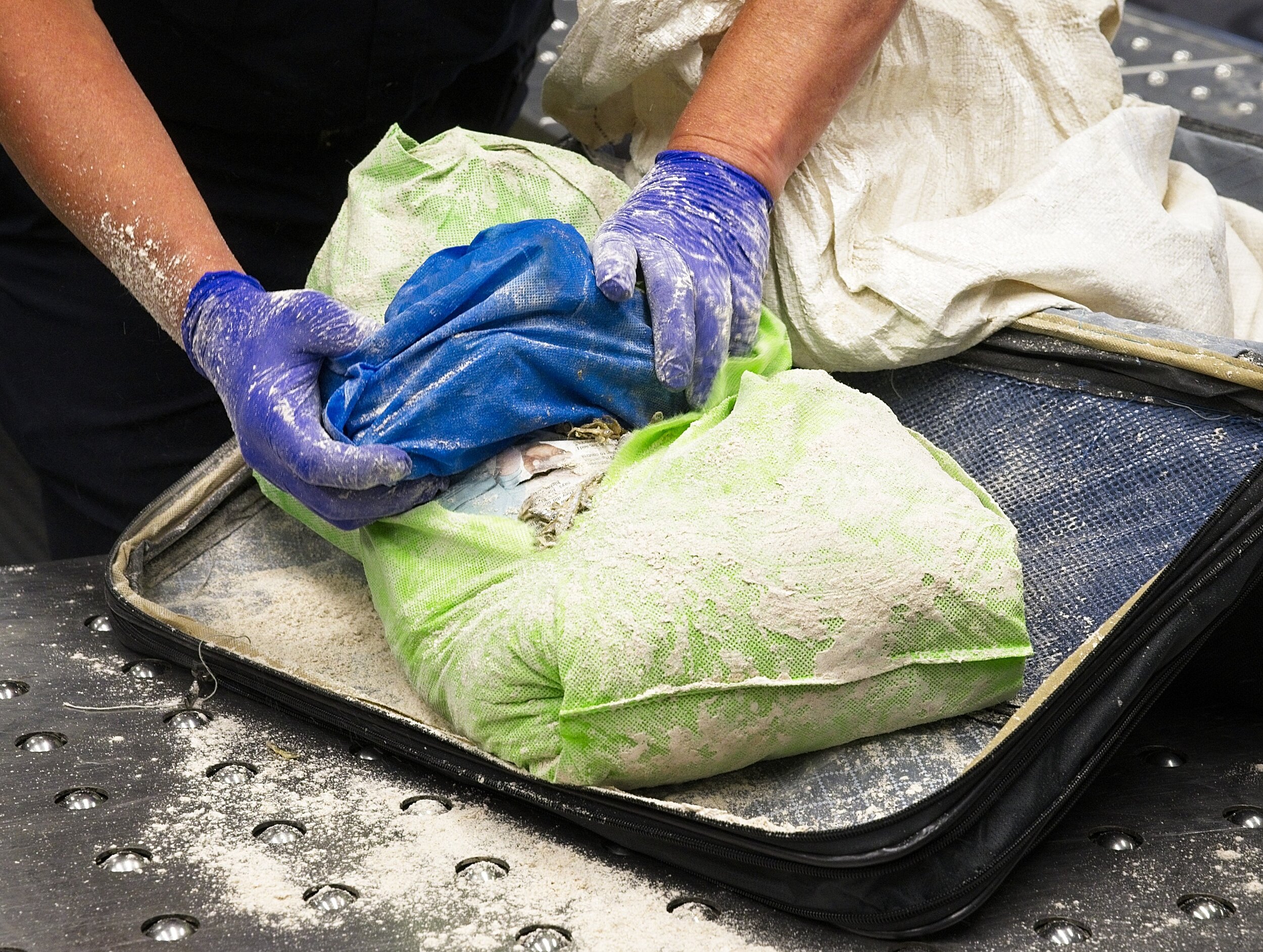Beagle Brigade - Four-legged friends deployed to protect our food system
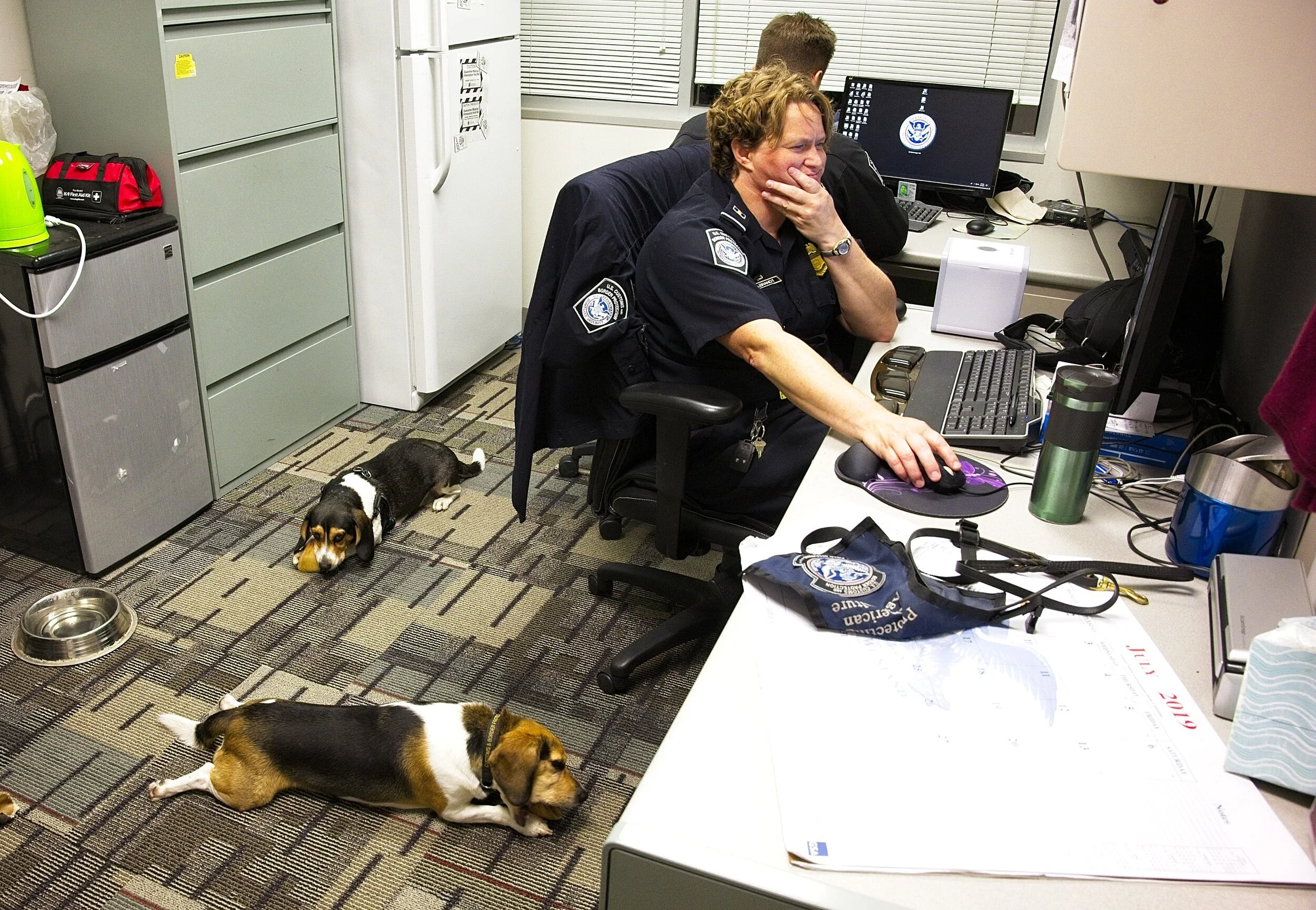
Standing about 16 inches tall, specialist for the region. “They are Jeff Powers, a CBP canine agriculture
Burnie, a U.S. Customs and Border Protection (CBP) canine officer, moves from bag to bag while patrolling the Minneapolis-
St. Paul International Airport. As travelers navigate the U.S. port of entry, they flash a smile at Burnie and pat him on the head unaware of the vital work he is doing.
Burnie is one of 120 beagles that work side-by-side with agriculture specialists at more than 180 ports to protect the food supply and agricultural industries. They prevent the intentional or unintentional entry of harmful plant pests and animal diseases into the U.S.
Known as the “Beagle Brigade,” this important group of four-legged friends is working the frontlines every day. The dogs can scan luggage for smuggled
or forgotten fruits and meat products in seconds, compared to the time- consuming process of opening and visually inspecting bags.
“They work at a molecular level,” says Tim Lauth, CBP’s chief agriculture specialist for the region. They are trained on five or six scents when they come out of school, but by the time they end their career they can identify hundreds of scents.”
Beagles like Burnie and his Minneapolis partner Scarlett were chosen because of their keen sense of smell, non- threatening size, high food drive and friendly disposition with the public.
“Not much gets through with the beagles working in tandem with their agriculture specialist partners. Together, they are great,” Lauth says. “But you still need the human touch.”
The beagles are the first wave of inspection in a multi-step process. CBP agriculture specialists have extensive training and experience in biological sciences and agricultural inspection. Several agents in Minneapolis hold Bachelor of Science degrees in agronomy and entomology. Other agents spend their spare time working on the family farm.
Jeff Powers, a CBP canine agriculture specialist, works with Burnie every day, patrolling the international flights arriving in Minneapolis and transporting thousands of passengers.
“He gets a lot of attention at work,” Powers says of his furry partner.
Currently, one of the top threats to U.S. agriculture is African Swine Fever (ASF) – a highly contagious viral disease affecting pigs. According to the U.S. Department of Agriculture (USDA), it is estimated to have already impacted about 40% of China's 450 million pigs and has spread to other countries in Asia and Europe.
The virus causes nearly 100% mortality, and there is no vaccine or treatment at this time. If it were to reach the U.S., it could cause severe damage to the nation’s pork industry.
“While pork from pigs with ASF is safe to eat, the ramifications of ASF in the U.S. could be wide-reaching,” says Jamee Eggers, producer education director for the Iowa Pork Producers Association.
Eggers says if the disease were to make it to the U.S., it could drive pork prices down rapidly and cause a decrease in demand for soybeans and corn, because these crops are key components of pig feed. Currently, pork production in Iowa creates 141,813 jobs and nearly $37 billion annually in sales, according to the Iowa Department of Agriculture and Land Stewardship.
"Agriculture is so important to Iowa that even if a consumer doesn’t think they are related to pork production, they likely know someone, work with someone or have family that could be directly affected by the loss of jobs," Eggers says. "It could have a far-reaching impact on rural Iowa communities."
ASF is only one of a dozen high- priority foreign animal diseases and invasive plant pests that the Beagle Brigade and CBP are working to keep out of the U.S. Others include the Khapra beetle, nematodes, cottonseed bugs, rust fungus, Newcastle disease, fruit flies and propagative plants.
"You can have something as simple as an orange that has a fruit fly on it or a leaf with an aphid on it. These small pests can wipe out millions of dollars in agricultural goods," Lauth explains.
On a typical day in fiscal year 2018, the CBP processed 1,133,914 passengers and pedestrians. On average, CBP agriculture specialists discovered 319 pests at U.S. ports of entry and 4,452 materials for quarantine each day.
"The Beagle Brigade and their CBP agriculture specialists are a key component of our nation’s first line of defense against illegal agriculture products," Eggers says
Story originally published for Iowa Food & Family Project Fresh Pickings Magazine and the Iowa Soybean Review
For more than two decades, Joseph L. Murphy has had the pleasure of meeting and connecting with people from all walks of life through photography. He has photographed presidents and heads of state, traversed the winding alleyways of the Fes Medina in Morocco, photographed the sprawling countryside and people that make up Argentina and covered events that have defined the U.S. Most recently, Murphy’s travels have taken him to Cambodia, Mexico, China, Vietnam and Ecuador.
He has spent the past 20 years specializing in agriculture photography for multiple organizations, publications and marketing projects.
A graduate of the University of Iowa, Murphy determined at an early age that his love of photography would shape his vision for life.

